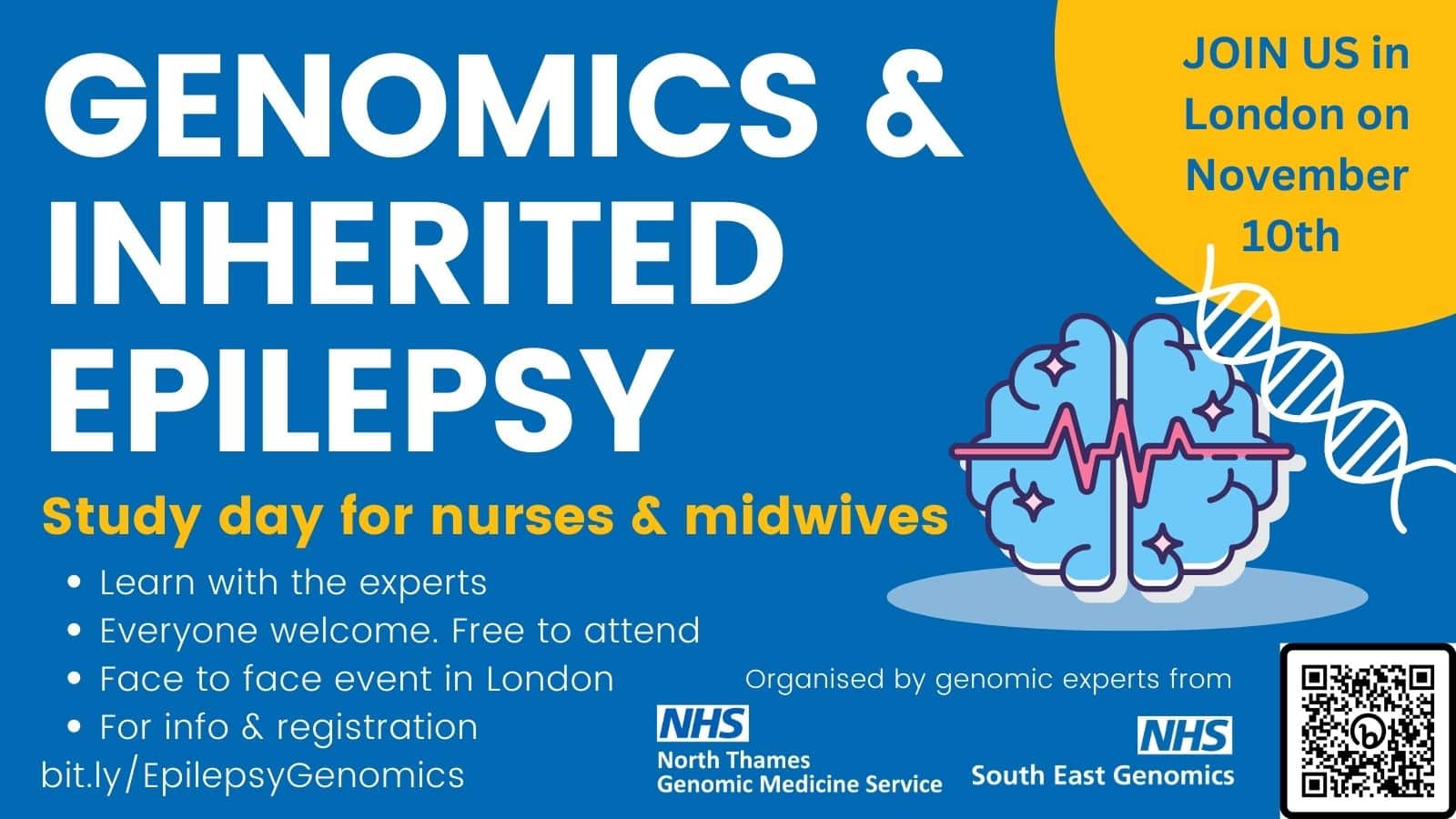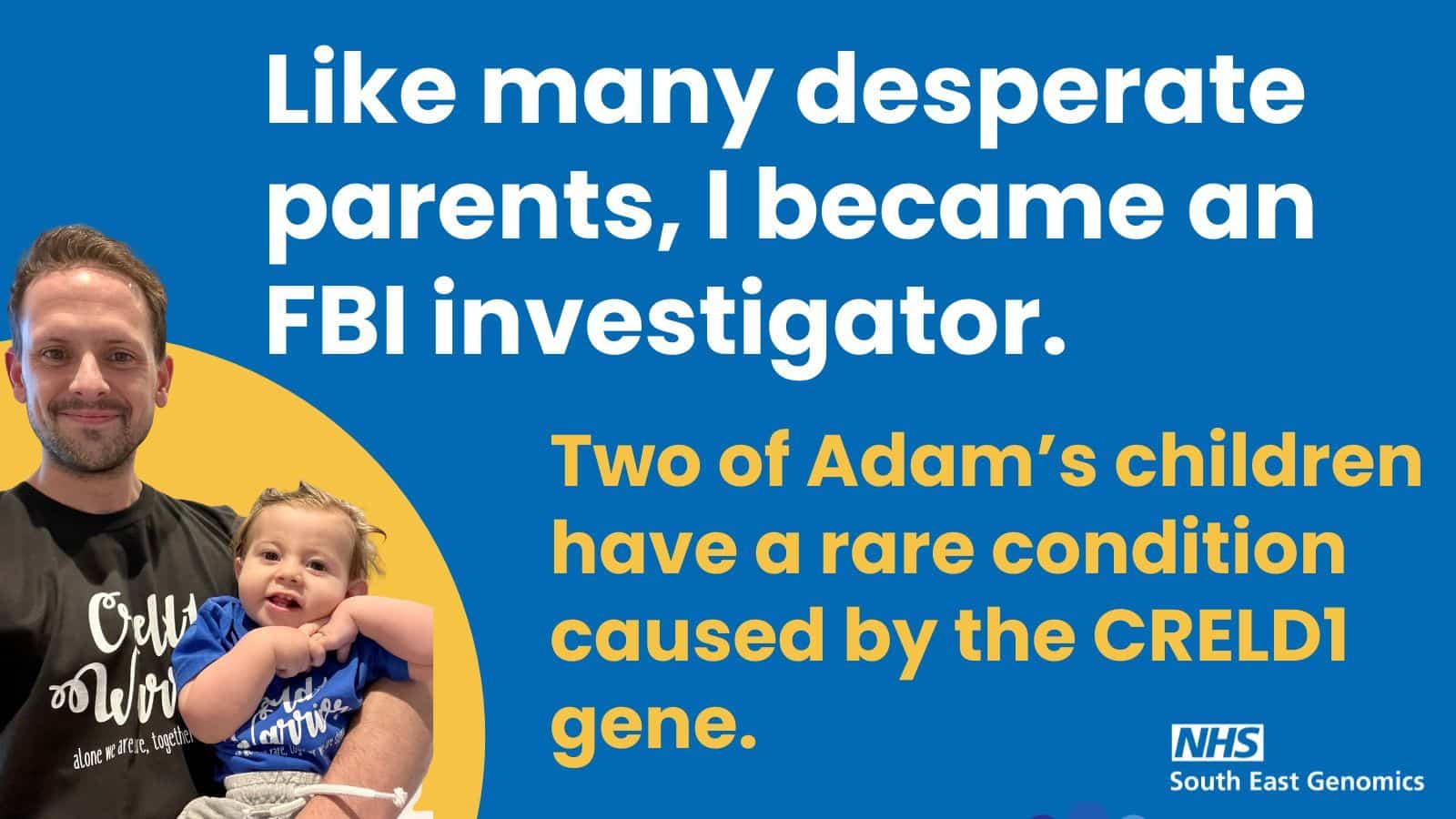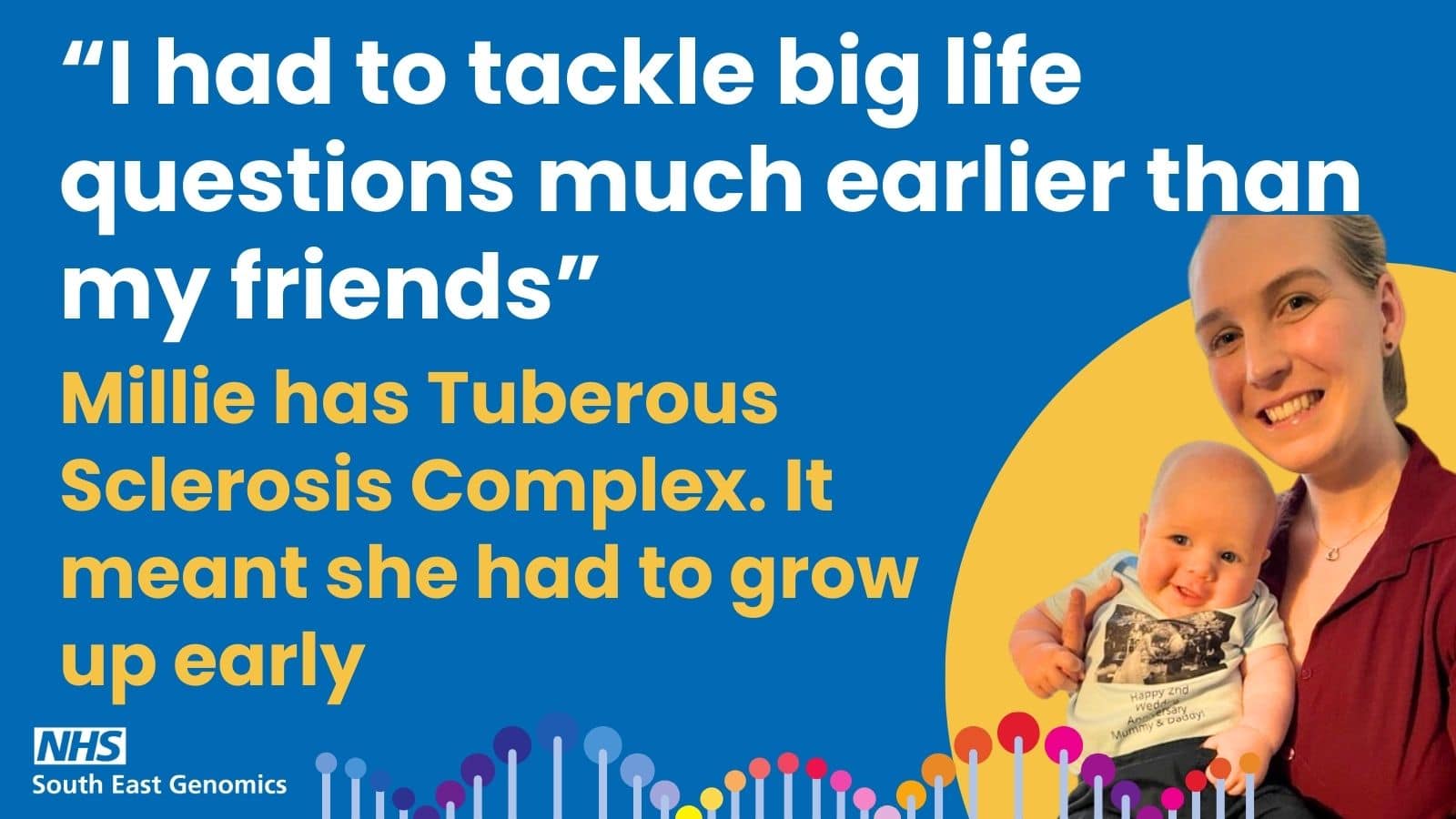Genomics & Epilepsy
Supporting nurses & midwives to ensure equitable access to genomic testing for epilepsy.

What are we trying to do?
Epilepsy is a common condition affecting the brain and is most commonly characterised by the presence of seizures. A small percentage of all epilepsies (around 5-10%) are inherited. Epilepsy can be caused by interactions between several genes and environmental factors.
Access to genomic testing is available on the NHS to support a more accurate epilepsy diagnosis.
We are supporting nurses and midwives to improve equitable access to genomic testing for their patients who are eligible ensuring genomic medicine for those people who have inherited, or genetic epilepsy.
Why is this important?
Treatment for epilepsy is determined by the types of seizures and the type of epilepsy that the person has. It also takes into consideration any other medication or existing health conditions. Therefore it’s important for clinicians to know exactly what type of epilepsy they have to ensure accurate treatment.
For example, if a patient is diagnosed with Dravet Syndrome, a form of epilepsy which is usually caused by mutation in the SCN1A gene, then they can be treated with a specific combination of medications that wouldn’t otherwise be prescribed.
Accurate diagnosis of genetic epilepsy may also open the opportunity of clinical trials for that patient.
A definitive genetic cause for epilepsy also opens up the possibility for reproductive planning and options such as prenatal testing or pre-implantation genetic diagnosis and predictive testing for relatives where appropriate.
Midwives will encounter patents with epilepsy and nurses provide continuous care for chronic, long term epilepsy and their constant presence puts them in an ideal position to support people to access genomic medicine, especially for those who have not yet been offered genetic testing. It is therefore paramount that they are equipped with the right knowledge and skills in genomics to provide optimal patient and family care.
Progress & next steps
We proactively gathered feedback from a wide range of people, patients, charities, nurses, midwives and other professionals about their experiences. Everyone shared valuable insights and constructive comments about what is needed to improve access to genomic testing for epilepsy.
This crucial feedback has informed the co-creation of new tools and educational resources that are now available to enable nurses and midwives to directly refer their patients for genomic testing, or refer them to specialist clinical genetics.
New resources now available include:
- New patient pathway LINK which clearly highlights key touchpoints where nurses have a key role in highlighting that someone needs genetic testing for epilepsy.
- A new ALERT tool LINK to help identify patients who could be eligible for genomic tests, especially in the setting of follow-up appointments where older patients might have missed out on contemporary testing.
- An educational webinar which offers an overview of genomics and epilepsy and explores the role of nurses.
- Educational materials <LINK> from a one day training session which covered genomic concepts, the diagnosis and management of epilepsy in adult and paediatric settings and the application of genomics, pre- and pregnancy care, nurse-led genomics mainstreaming and genetic counselling.
- New Clinical Pathway Initiative <LINK> which covers paediatric epilepsy and adult neurology and supports the genomic testing journey from consent, obtaining samples for DNA to relaying of results.
- New information on the Epilepsy Action <LINK> website for all anyone seeking more information about genetics and epilepsy.
Listen to parents, Adam and Jess talk about their experience of their children being diagnosed with a rare form of epilepsy caused by the CRELD1
Who are we working with?
- All 7 Genomic Medicine Services across England
- Epilepsy Action
- Epilepsy Nurses, Midwives, Genetic Counsellors & Clinical Geneticists
- Epilepsy Specialist Nurses Association
- NHS Genomic Education Programme
Many thanks to everyone who has worked with us and contributed their thoughts, experiences and ideas.
Learn more

Meet the team
Resources
National guidance from NICE about genomic testing and epilepsy
- To add
Your questions answered
Epilepsy can have a genetic link. Sometimes, epilepsy can be caused by changes in your genes (genetic variants).
Genes are the instructions that tell our body how to develop and function. Sometimes these genes can change, which changes how your body works. They are called ‘disease-causing genetic variants’ or ‘pathogenic variants’.
The relationship between epilepsy and genetics can be complicated. Scientists are finding new genes related to epilepsy all the time. There might be many factors causing your epilepsy, as well as genetic changes. Your lifestyle and environment might have an effect too.
Sometimes epilepsy can be caused by other things and there might not be a genetic cause.
Your epilepsy specialist can tell you if they think your epilepsy may have a genetic cause. They may refer you for genetic testing. Some types of epilepsy have a higher risk of being inherited than others.
The National Institute for Health and Care Excellence (NICE) recommends genetic testing for certain people. This includes if you or your child has:
- Epilepsy that started before the age of 2 years old
- Symptoms that suggest a specific genetic epilepsy syndrome
- Other conditions like a learning disability, autism spectrum disorder, or memory issues
- A change in the structure of the brain
Even if your epilepsy is thought to have a genetic cause, it is not always possible to identify that cause. There is still a lot to learn about human genes and which genes might be linked to epilepsy.
In around half of people with epilepsy there is no known cause for their condition. But technology is constantly improving. Researchers are likely to uncover the causes of seizures in more and more people over time.
There are many different types of epilepsy with a genetic link. Here are some examples.
Epilepsy syndromes
Some epilepsy syndromes are more likely to be caused by genes.
A syndrome is a group of signs and symptoms that, added together, suggest a particular medical condition. For epilepsy syndromes, these signs and symptoms can include seizure type, age, other conditions, and triggers. Syndromes may have similar symptoms but have different underlying causes.
Examples of epilepsy syndromes found to have a genetic cause in some cases:
- Dravet syndrome
- Early infantile developmental and epileptic encephalopathy (EIDEE)
- Genetic epilepsy with febrile seizures plus (GEFS+)
Genetic generalised epilepsies
Genetic generalised epilepsies (GGEs) are a group of syndromes. They may also be called ‘idiopathic generalised epilepsies’ (IGEs).
There is usually no identifiable genetic cause for these types of epilepsy, but there is often evidence of a family link. People with one of these syndromes have generalised seizures.
Genetic generalised epilepsies include these 4 syndromes:
- Childhood absence epilepsy (CAE)
- Juvenile absence epilepsy
- Juvenile myoclonic epilepsy (JME)
- Epilepsy with generalised tonic-clonic seizures alone


